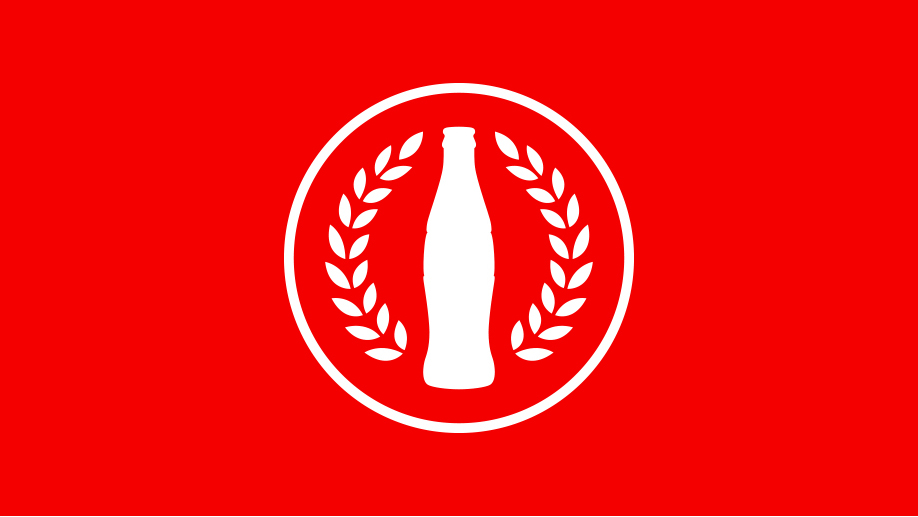College costs a lot of money, and instead of making it easier, they just keep raising the prices every year. With recent cuts to federal grant funding, it seems likely that the costs for students are going to grow even further, putting even more of a strain on students. This is something we’ve talked about before, covering federal, state, and university financial aid that can help you afford college. In this article, we’re going to look at another potential funding source: the Coca Cola scholarship. We’re going to explain in detail what this scholarship is, who qualifies for it, and how you can apply. Third party scholarships like this are an often underexplored way for students to gain additional support paying for college; let’s dive in and find out more!
The Coca Cola Scholars Program Scholarship
This scholarship is awarded by the Coca Cola Scholars Foundation, which is a nonprofit founded by and primarily funded by Coca Cola, though technically a separate entity. Every year, they select 150 students to receive a $20,000 college scholarship, along with a few smaller scholarships they also manage and award (more on those later).
This funding may be applied to the tuition expenses of an accredited university, or other associated educational expenses, such as university housing or needed supplies like textbooks. Recipients have up to ten years to use the funding, and may disburse it as they see fit. In addition to the award itself, the foundation also tries to keep in touch with scholars, and hosts receptions and alumni events for them.
The scholarship is fully achievement based; need is not considered at all when applying for this scholarship. This is rare, and makes this a very popular scholarship amongst middle class students; those who often earn too much for many need-based scholarships, but not enough to afford the spiralling cost of college tuition.
Applying for the Coca-Cola Scholarship
Now that we’ve covered what this scholarship is, let’s turn to the next key questions: who is eligible to apply for it, and how exactly you can do so. Eligibility is the first component, students must meet the following criteria to be eligible for this scholarship:
- You must be a currently enrolled high school student (or homeschooled student) in a US state, DC, Puerto Rico, or select DoD schools abroad, who is graduating in the school year in which you apply
- You must be a US citizen, national, permanent resident, refugee, asylee, or humanitarian parolee; this is based on Department of Education guidelines for federal financial aid
- Be on course to graduate and receive a diploma in the current academic year
- Be planning to enter an accredited college or university
- Have a minimum GPA of 3.0/4.0 in your high school coursework
On top of this, certain groups are specifically ineligible for this scholarship:
- Students attending international schools, or American schools abroad (With the exception of some DoD schools)
- Relatives of current Coca Cola employees or owners, or owners of affiliated corporations, such as bottling companies
- International students
- Students who have already graduated from high school
- Temporary residents
How to Apply
Once you have determined your eligibility, it is time to actually apply for this award. All applications must be submitted online, through the foundation’s website. They do not accept applications which have been printed out and mailed in. They do make this easy to access, but you need to do the whole thing online. You can begin work on the application, save it, and return later to finish the application.
The application opens each year on August 1, for students who will be graduating the following spring. The application is due on September 30. This gives you approximately two months to complete the application.
The application has several different portions, and in several ways resembles portions of the Common App. We will go through each of these sections in turn, to describe what it’s asking and how best to answer each.
Biographical Information
This is the first section, and is exactly what it sounds like; questions about who you are and your background. Note that this will not impact your chances of getting the application; they do not consider demographic information, save in determining your eligibility for the scholarship. This portion of the application should be filled out to the best of your ability, we’ll give notes on points where students might have confusion.
For email address, this should be one you check regularly, and which is reasonably professional. You should have one of these for college applications as well. You should give your counselor a heads up you are applying for this scholarship; they usually will not reach out to counselors, but in case they do, it’s good to give forewarning.
If you are a homeschooled student, and you are a member of a homeschooling association, you can enter the head of that organization as your principal and counselor. If you are not part of such an organization, you may enter your parent(s) for this section. You should only do this if you are homeschooled.
The optional section is truly optional; this is information they collect for informational purposes, and does not impact your application’s chances. You can fill it out or not as you desire.
School/Academic Activities
This, and the following sections, are akin to but distinct form the Activities and Honors sections of the Common App. The goal is again for you to inform the organization about how you spend your time outside of the classroom. For the Coca Cola scholarship specifically, this is the most important thing they consider, and the primary differentiator between applicants.
How you enter information is the same in this and each subsequent section; we’ll cover it here and then refer back. What changes is what exactly they’re asking about. Unlike the Common App, which has a single list of ten spaces for you to list all activities you were involved with, here they break it down much further.
For each entry, you first put the total number of organizations of that kind you wish to discuss. The very first option is “Student Government,” with up to four total spaces; for this, you may enter 0-4, to indicate how many you’d like to talk about. Note that for something like student council, if it is the same body for all four years but you held different positions (i.e. member, secretary, vice-president), you can enter that as a single entry, and list different positions by grade level.
For each entry, they ask which grades you participated in, level of involvement at each grade, and the name of the activity. There is no room to explain or explore or elaborate on what exactly you were doing as part of that activity. This does make it easier to fill out, but gives you far less room to brag and add details.
The first section here is the abovementioned student government. This refers to both student council, and other leadership roles you take on within the school itself that are not part of a broader club or which do not fit into another of the categories. You can list up to four activities here.
The second section is for academic honors societies. Most commonly this will include the National Honors Society, but there are plenty of these, both topic specific and a number of Greek organizations. They note that you should spell out the full name of each, and not use acronyms. You may indicate you were involved in 0-16 of these, but may provide details on up to four.
The third section is on student media and publications. This includes things like school newspapers and the yearbook, but can also include things like a literary journal produced by your school that you work on. You may provide details on 0-4 of these.
The fourth section is for performing arts; theatre, dance, music, and the like. This includes both performing and technical roles, such as stage manager or set design. Note that you should only include school-sponsored activities in this section. You may record 0-4 of these.
The next section is on speech and debate. This also includes things like mock trial or model UN, but only those clubs you have participated in through your school. You may enter 0-2 activities here.
The next section is on visual arts; these are things like painting, photography, or digital art and design. You may enter details on up to two organizations you were part of through your school. Note that an activity may feel like it fits in two categories, such as if your school published an art book and you were both a contributor and editor. For these, you should pick one and enter it in there, rather than entering the same activity in multiple sections.
The next section is athletics, which is for all club and team sports you participated in through your school. You may enter 0-6 of these, and provide detail on 0-2 of them.
The next section is for any and all other clubs you were part of through your school. You should not repeat any entries from above or elsewhere on your application, and should only include those activities which were sponsored by your school. You may indicate you were involved with 0-16 of these, but may only enter details for up to three. We advise focusing on the club where you were involved the longest, and had the most impact, if you find yourself forced to choose which to include.
The final portion of this section is for school based awards and honors; which is akin to the Honors portion of the Common App. Note that this is only for awards given through your school; there is another section for awards from elsewhere. Note that these awards should be academic centered; athletic awards are impressive, but they are not looking for those. You may enter details for 0-10 awards.
Community Activities
This section is on the things you were involved with that were not your academic courses at your school, and which also were not directly sponsored by your school. This covers a lot of ground, but is not broken down quite so much. Just as with the above section, they ask only for the name of each activity, and your position and level of involvement, no other details.
The first section is on the number of hours of volunteering and community service you did, both school-sponsored and on your own initiative. This can also include unpaid work you do for your family, such as working in a family member’s business or taking care of a family member. There is nowhere to discuss what this is, you simply write down the total number of hours spent doing this volunteering per grade level.
The next section is for organizations and opportunities you were engaged with in your community (except for paid employment). You first list how many you were involved with, from 0-9, for each grade level. You are then given space to name up to three of these activities total. As with the section for high school activities, you only enter the name of it, and your role, no other description of your involvement. As you are only permitted three activities, you should focus on those where you had the most involvement, and where you had the highest level of leadership responsibility.
Finally, you may list community-based awards and honors. This is again akin to the honors section of the Common App, but allows you to list any awards you have won outside the context of your school. You may enter 0-10 of these. The name of the award should also include the group who was awarding it, or in which context it was received.
Academic Information
In this section, you enter information on the academic courses you have taken. You must have taken at least three courses in the following subjects: English, math, science, and social studies. Students who have not done this will not have their applications reviewed. You may only report courses which appear on your high school transcript (though dual-enrollment courses qualify).
If a course gives a final grade, report that. If a course instead only gives term grades (such as for schools that grade on a semester system), report the higher of the term grades. All grades reported should match your transcript; students who advance to the next phase of consideration are asked to provide an official transcript, so they will check on this.
For each subject, you are able to enter up to five courses. Some courses, like Art History, may be able to be put into multiple categories; you must choose which one to put it in when entering the course. For each course, you are asked to enter the name of the course, whether you completed it, the level of the course (advanced, on level, remedial), and what grade you received in the course.
The following course categories are offered: English, Math, Science, Social Studies, Foreign Language (0-4 courses), Arts (0-4 courses), and Other Courses (0-4 courses). You are finally asked for class rank information. This should be reported exactly as it is on your transcript.
Employment Information
This section is only for paid work you have done. Unpaid work may be entered under another section at your discretion. Academic and research internships should go under the section for school and academic activities. Self-employment, for jobs like babysitting or tutoring, should be entered as well, with self-employment and the kind of job listed as the employer.
For each grade, you are asked the following questions:
- How many weeks you were employed
- How many hours a week you worked during the school year (on average)
- How many hours a week you worked during the summer (on average)
- Total number of employers
- The names of any employers
Self-employed jobs do not count towards number of employers, but should still be listed under names of employers.
Is This Scholarship Right for You?
What this scholarship is looking for primarily is evidence of leadership, in both your school and in the community at large. This can be demonstrated only by the activities you were involved with, and the positions you held within those activities.
Unlike the Common App, where the activities list gives you some (very limited) room to add context, here, you only list names and positions, nothing else. Students who pursued more atypical activities, or who assumed de facto rather than de jure leadership positions, may not be well served by this scholarship.
Also unlike the Common App, there is no way to divulge the number of hours you spent on each activity in a week; this makes gauging the level of involvement you had even more difficult, and may hurt students who had a very intense involvement in only one or two activities (something that colleges often enjoy seeing).
If you are engaged in a wide range of primarily academic extracurriculars, or other opportunities through your school, and have demonstrated a high degree of leadership in those through holding offices, then this is likely a good scholarship for you to apply to. They look specifically for leadership demonstrated in this way, and this is all their application screens for. Students who have not done this may find success applying for other scholarships.
Finally, students who achieved high academic success are more likely to be awarded this scholarship. They do, however, count any grade between 90-100 as an A, which is more flexibility than some programs have (that is, they don’t have any distinction between A and A-, or B+ and B). Students who have done well in difficult courses are more likely to receive this scholarship.
Final Thoughts
There are many third party scholarships out there, all of which seek to help students pay for college, especially as costs mount ever higher. We hope that this article has given you insight into one such scholarship, and whether or not the Coca Cola Scholarship is right for your needs, and suits your background.
Of course, navigating the difficulties of financial aid is just one hurdle of many in the college application process. From drafting the perfect essays to choosing which college to apply to in the first place, college applications are often a serious challenge, one students usually don’t get nearly enough support for. That’s where Ivy Scholars can help. Our team of expert mentors is well equipped to help students with every aspect of the admissions process, and to give you the guidance and support you need. Schedule a free consultation today to learn more; we’re always happy to hear from you.








